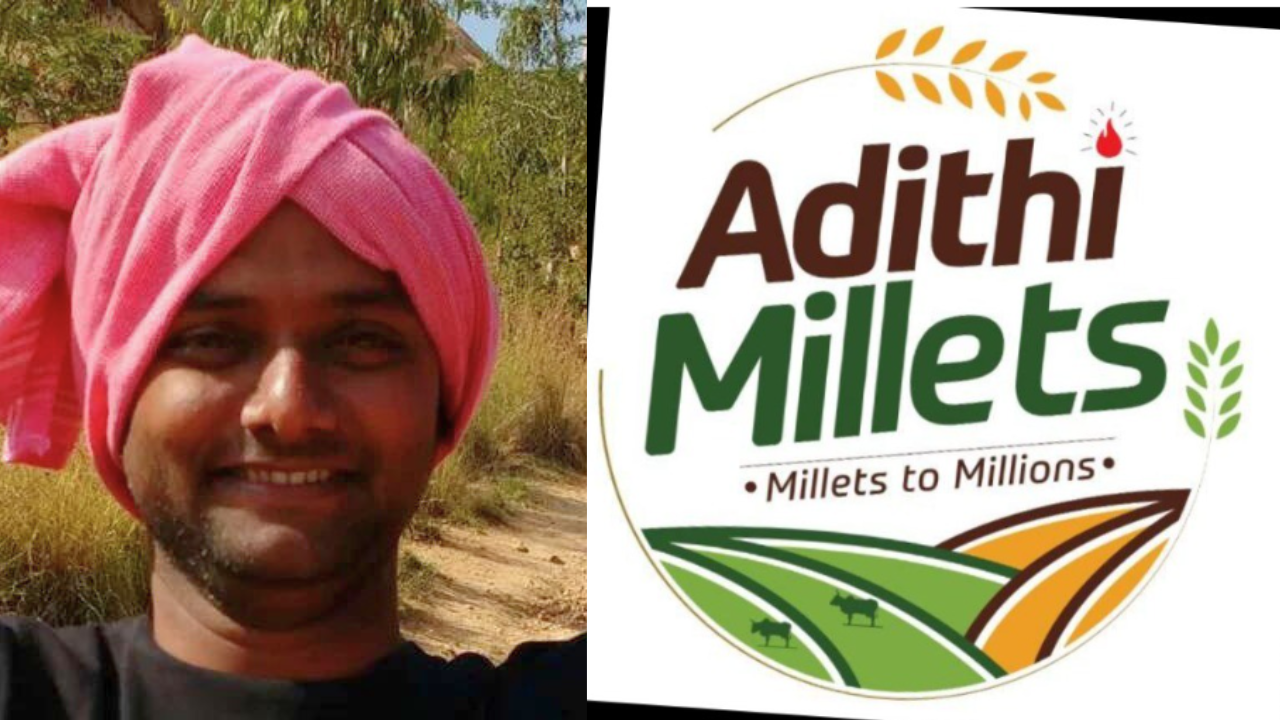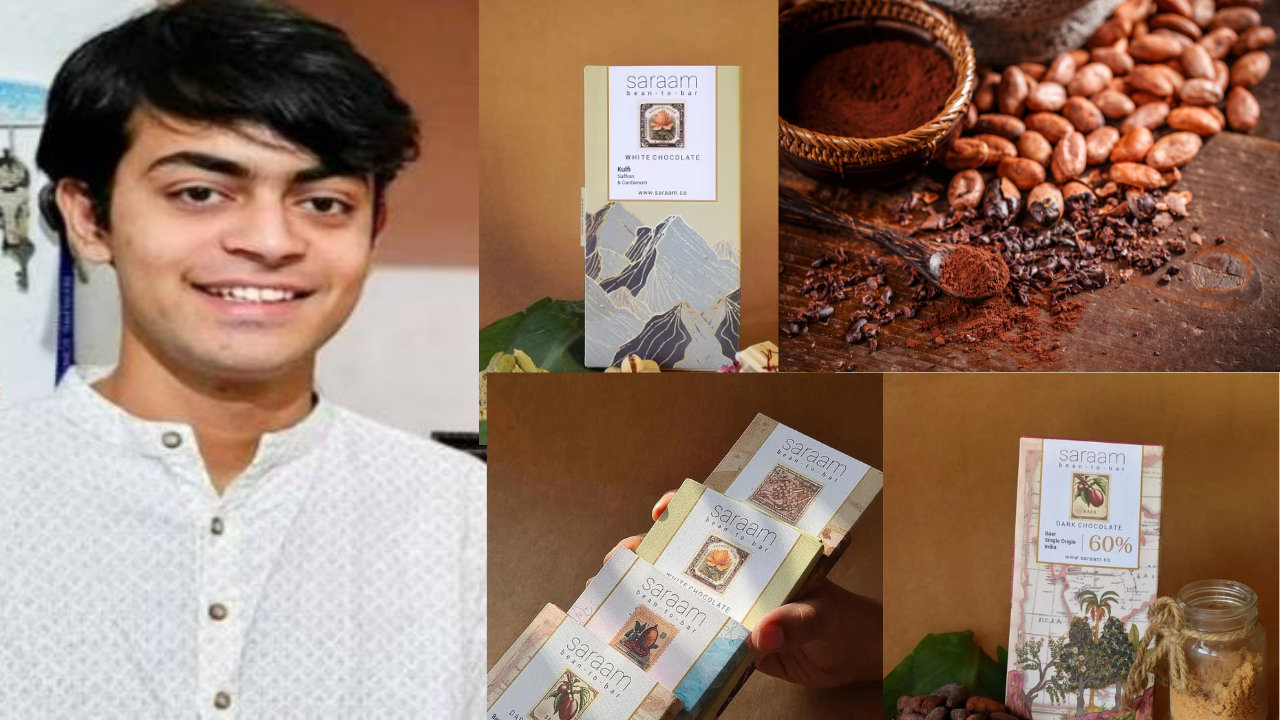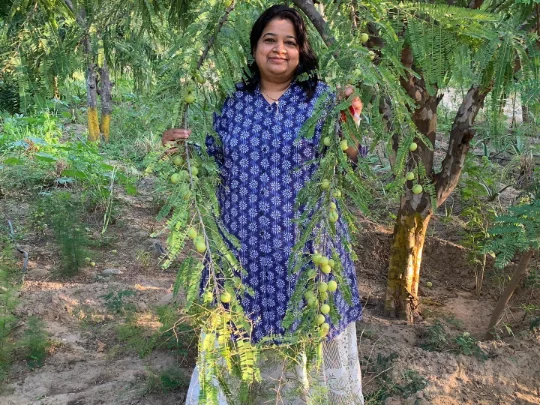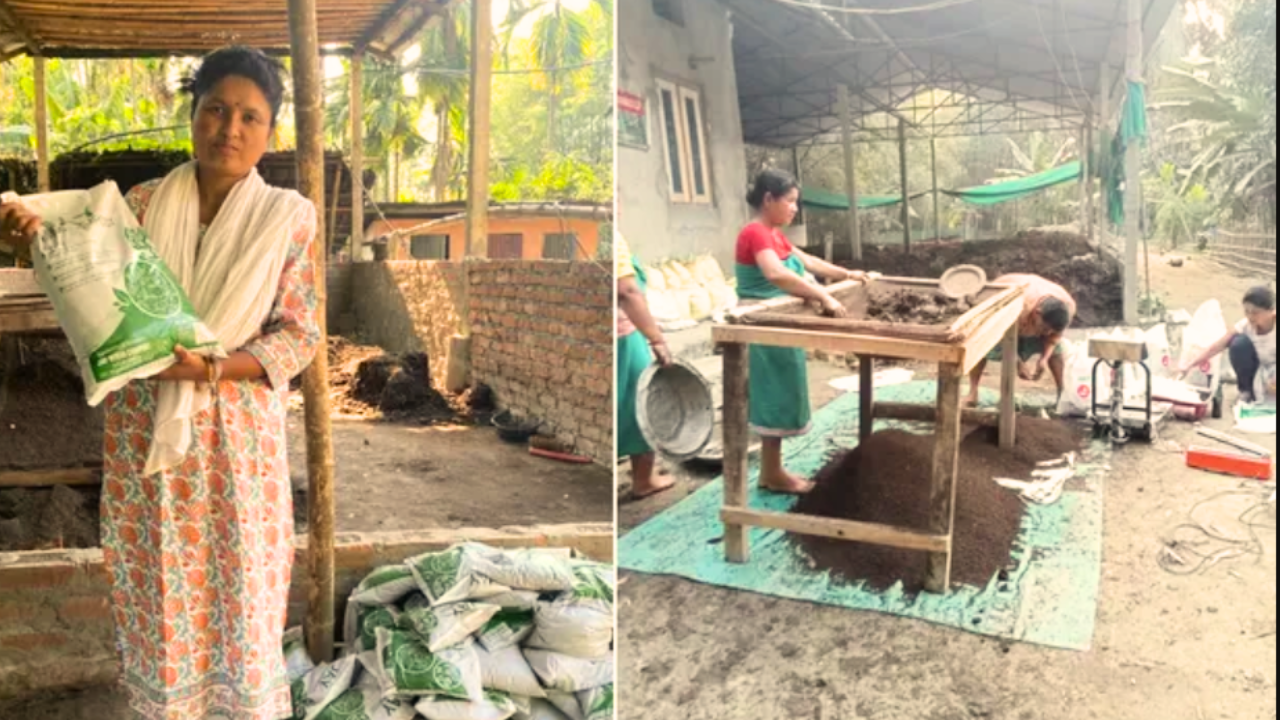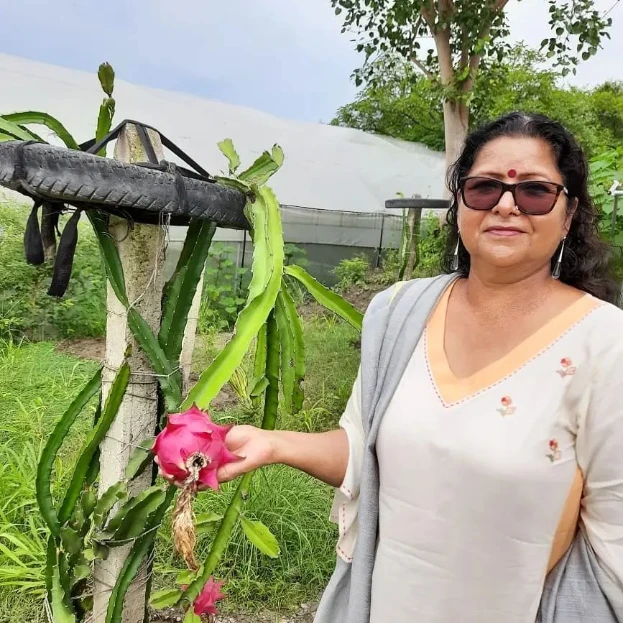“Empowering and buildng a multi-crore company isn’t a walk in the park, but if you’re up for an adventure, success is possible,” says Somashekar Pogula, an MBA graduate who ventured into the millet business six years ago. His journey into this field was sparked by a life-altering event that reshaped his views on food and nutrition.
Somashekar recounts his transformation from a corporate employee in the FMCG industry to an entrepreneur who founded Adithi Millets. This journey was marked by unexpected twists and turns, with a pivotal moment occurring in 2013.
“”In 2013, my father developed kidney issues, although the precise cause was unknown to specialists. He had to undergo dialysis in the months following the diagnosis,” Somashekar shares. Watching his father endure pain led him to repeatedly ask, “Why him?” — a question that remained unanswered. As hospital visits became more frequent, Somashekar’s savings dwindled. He reflects, “We exhausted our savings on private hospitals before resorting to government hospitals.” He devoted three years to trying to save his father, who ultimately passed away in 2013.
Unbeknownst to Somashekar at the time, the pivotal experience of his father’s illness would serve as the cornerstone upon which he would build the rest of his life.
Throughout the countless hospital visits during his father’s struggle, Somashekar couldn’t help but notice a disheartening trend. Many patients grappled with diseases directly linked to unhealthy dietary habits. It became increasingly clear to him that the prevalent use of chemicals and pesticides in modern agriculture was a major contributor to this health crisis.
However, his decision to embark on a journey into the realm of agriculture was not solely a response to this revelation. Somashekar hailed from a family deeply rooted in farming, providing him with an intimate understanding of the challenges faced by agrarian communities. Moreover, he was acutely aware of the grim reality of farmer suicides that cast a shadow over Indian villages. This multifaceted insight into the interconnected issues of health, agriculture, and rural livelihoods ultimately propelled him toward a new path – one that would see him become a catalyst for change, striving to address these complex challenges and make a positive impact on the lives of many.
A Man’s Mission to Restore Organic Farming and Prevent Farmer Suicides: “Breaking the Cycle”
In a report from June 2023 by The Times of India, it was revealed that from January to April this year, there were 830 instances of farmers taking their own lives, compared to 945 during the same period last year. This is a distressing reality, and Somashekar emphasizes that not enough is being done on the ground to break this devastating cycle.
To shed light on the issue, he elaborates, “Many farmers opt to cultivate high-value crops like cotton, chillies, and the like. To finance these endeavors, they often take loans from banks with the hope of a successful harvest that can repay the debt. However, if the harvest falls short, they find themselves borrowing more, spiraling into a cycle of mounting debt. Tragically, this desperation can sometimes lead to extreme measures like suicide.”
Feeling a deep connection to his village and a strong desire to assist struggling farmers during this crisis, Somashekar made the bold choice to leave his corporate job. He decided to collaborate closely with the local farming community in Kurnool, Andhra Pradesh.
During his time there, he observed a growing trend among new farming startups and entrepreneurs advocating for organic farming practices within the community. While their intentions were admirable, Somashekar found it somewhat ironic. He explains, “Farmers initially relied on natural and organic farming as their traditional approach. However, some switched to using pesticides due to perceived better results, influencing others to follow suit. Today, when I work with farmers to promote organic farming, my goal isn’t to introduce something entirely new but to reintroduce this age-old practice into their lives.”
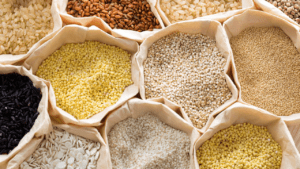
“Farming for the Future: Empowering Farmers and Communities with Adithi Millets”
Since its inception in 2017 with just 30 farmers, Adithi Millets has made significant strides. They now collaborate with over 200 farmers and have achieved a turnover of Rs 2 crore. The core mission of this venture is to empower farmers by encouraging millet cultivation, providing better marketing opportunities, and facilitating trade with corporate entities.
Somashekar’s outreach extends across seven villages in three districts of Kurnool, where farmers from places like Tadakana, Ulinda Konda, Bhudidha, Nagalpuram, and more are part of this cooperative effort.
Their guiding principle, “Millets to Millions,” drives Adithi Millets’ mission to promote the awareness and consumption of these nutritious superfoods among the broader population. When asked why he chose to focus on millets, Somashekar highlights their exceptional health benefits and their suitability for everyone’s diet. He adds, “Millets are also easy to cultivate, which means farmers don’t have to burden themselves with massive loans.”
When a farmer agrees to work with us, we provide them with an official company letter that clearly states the Minimum Support Price (MSP). This letter assures them that we’ll supply seeds for free every planting season. We consult with them to select the right seeds for that season. After they grow the crops, we purchase the harvest from them. This arrangement takes away their worries about finding a market for their produce,” he explains.
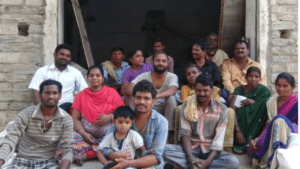
This is a significant relief for farmers because transporting large quantities of millet to other regions for sale isn’t a practical choice. Somashekar continues, “Once the farmers bring their millet to our facility, we ensure they receive the MSP we promised.”
Inside the factory, local women from the village are involved in the cleaning and sorting process. After they determine that the quality is up to standard, the millets are processed into value-added products like millet dosa, millet khichdi, malt, and more. These products are made available through Amazon and are reasonably priced, starting at Rs 150.
Somashekar also highlights that their relationship with farmers goes beyond just providing seeds and helping them find a market. He adds, “We also support families affected by farmer suicides by providing them with sewing machines, livestock, and other resources that can help them generate income.”
Also Read: Sharmila Jain Oswal’s Inspiring Voyage to Rs 16 Crore/Year Success with the Millet Revolution
“Doubling Harvests, Doubling Income: Farmers Thrive with Adithi Millets”
Hemadri Reddy, a farmer from Kodumur village, began growing brown top millet in June 2022 when he partnered with Adithi Millets. Sharing his story, he explains, “Before I joined Adithi Millets, I used to plant brown top millet seeds on four acres of land and would harvest around 4,000 kilograms of millet. When I sold it in the market, I would get a Minimum Support Price (MSP) of Rs 5,000 per quintal, earning me Rs 2 lakh for the entire yield.”
However, after joining forces with Adithi Millets, he adopted Somashekar’s re-cropping method. This involved leaving six inches of millet stubble in the ground after the initial harvest and allowing it to regrow during the monsoon season without sowing new seeds. The result? He obtained another 4,000 kilograms of brown top millet, which he sold for Rs 7,000 per quintal.
“I nearly doubled my previous earnings without having to plant new seeds,” Hemadri Reddy happily exclaims.
Meanwhile, Somashekar takes pride in the positive impact he’s making in his community. His commitment to sustainable farming practices and his passion for agriculture have proven successful and have allowed him to expand his enterprise to its current state.
You can shop for Adithi Millets here

